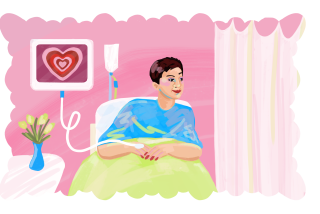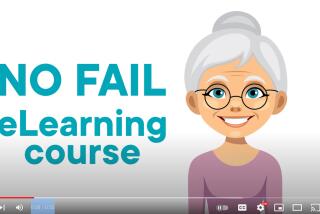Honesty goes by the wayside
- Share via
The visit seemed routine at first. Harry emphatically denied any deterioration in his health since his last visit -- he wanted only to refill his anti-seizure medicine. I skimmed through his chart, looking for the date of his last seizure.
Years ago, he responded quickly to my question on changes in his health. Too quickly.
No seizures in the last couple of years? I asked gently.
He shook his head, avoiding my gaze. I sighed.
Look, he pleaded, I’ve got to drive to get to my job. I’m pretty sure it wasn’t a seizure, he added; maybe I just had too much to drink that night.
It was my turn to look away. After a pause, I continued: How long were you unconscious?
Just a minute, he said, only a minute. His eyes searched for mine as I continued asking him a list of questions intended to help clarify the details and possible cause of the episode.
His anxiety was obvious and understandable. He added: You’re not going to report this, are you? Please?
Most of us see our cars as our lifeblood, integral to our livelihoods. Public transportation in Los Angeles is not perceived by many as viable. But driving may be risky for those in poor health.
California is one of six states that require doctors to file reports on a patient’s loss of consciousness to the Department of Motor Vehicles. The law was passed because of concerns that drivers who lost consciousness at the wheel would pose a public safety risk. To prevent those possibilities, the DMV may suspend or revoke a driver’s license if that action is medically indicated. In order to reinstate their license at some future date, a driver is required to undergo another medical evaluation.
Even though most at-risk patients understand the rationale for the legislation, the potential effect of the law on their lives is a bitter pill. The result can be a less than honest interaction between patient and doctor.
Last October, the California Medical Assn. released the results of a survey showing that 8.6% of the more than 200 responders admitted anonymously that “they had already concealed information on their seizures from their physician because they were afraid of having their license revoked.” And 18.6% responded that they had considered doing so.
Both physicians and patients have expressed concerns that mandatory reporting could fracture the delicate relationship between a physician and patient. On the other hand, can the risks of a future event that may harm the patient or others be ignored?
In Harry’s case, further history and my physical examination led me to believe that his overuse of alcohol, itself a significant problem, was a more likely cause of his loss of consciousness. However, I could not entirely rule out a recurrent seizure and so, after advising Harry not to drive, I referred him to his neurologist for reevaluation. I also discussed healthier choices regarding alcohol use and offered Harry counseling resources to address his needs.
And then I told Harry I was obligated to file a report. He was understandably angry, even after I told him that I hoped his neurologist might provide the medical clearance he needed to continue driving. Harry did not return to my office for follow-up, and I never again saw his name on my daily patient roster.
I am, however, grateful that I also have not seen Harry’s name printed on another piece of paper -- a certificate identifying motor vehicle accident injuries as a cause of death.
*
Dr. Linda Reid Chassiakos is director of the Klotz Student Health Center at Cal State Northridge and a clinical assistant professor of pediatrics at UCLA.


